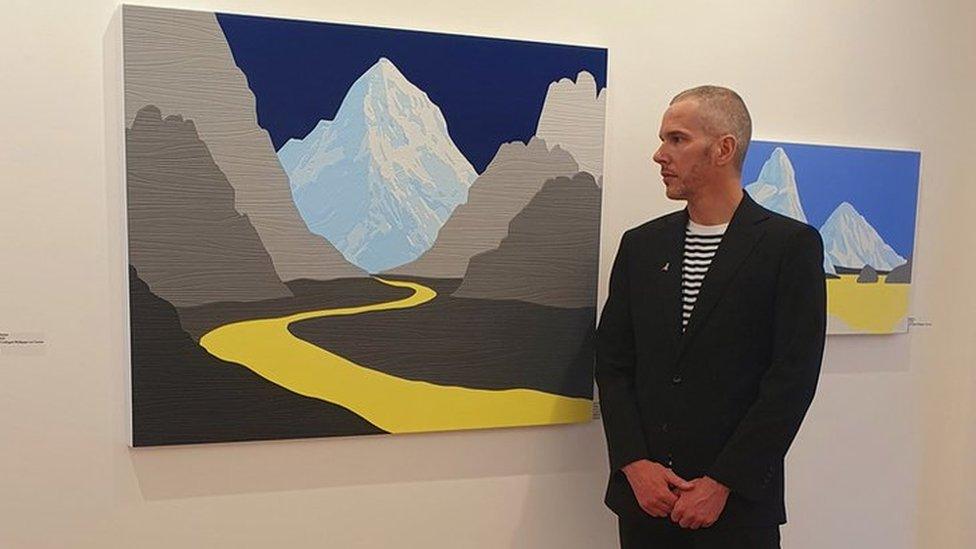Wildlife sculptures made from fly-tipping waste go on show
- Published
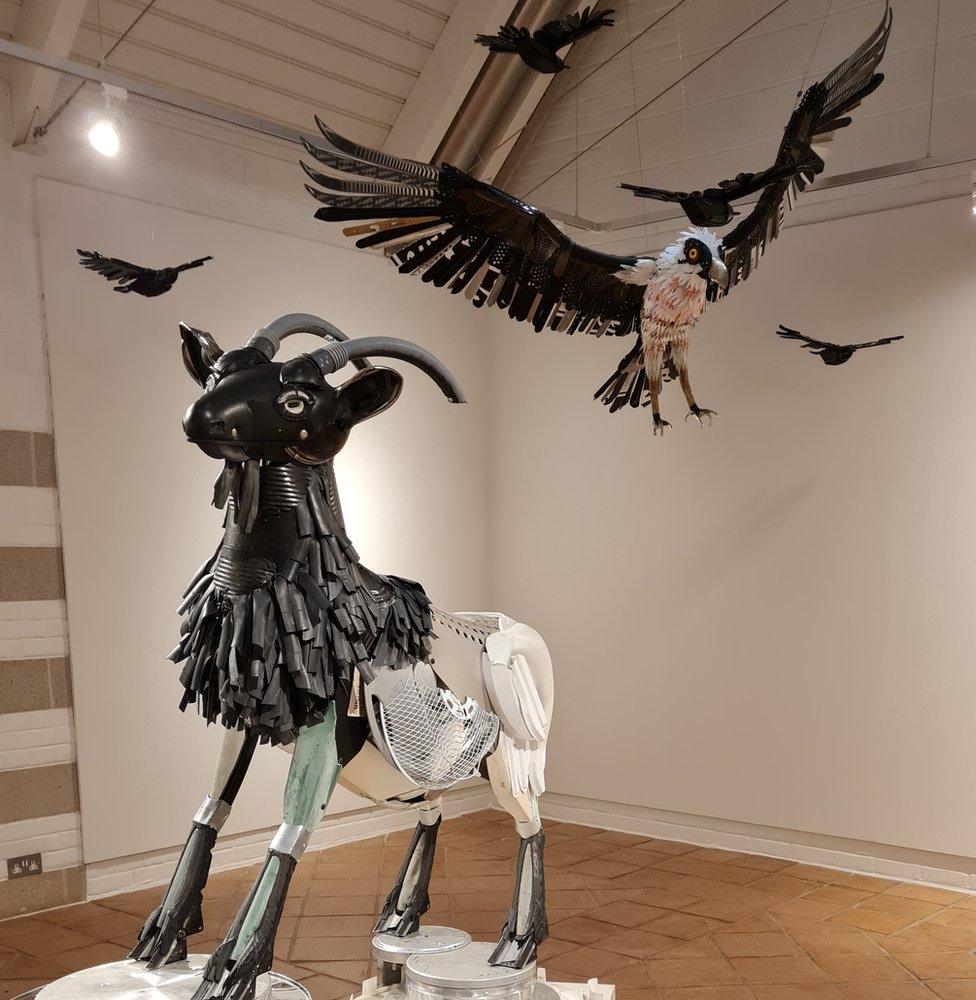
Sculptor Michelle Reader said she used washing machine, cooker, fridge and microwave parts in her wild goat sculpture
Wildlife sculptures made from fly-tipping and litter waste are to go on display.
A wild goat, a vulture and a bumblebee feature in the Recycled Sculpture exhibition at The Harley Gallery and Portland Collection Museum at Welbeck, Nottinghamshire.
Nottinghamshire-based sculptor Michelle Reader used items including washing machine parts, skis and a gas mask.
The exhibition is due to run from Saturday until 24 July.
Ms Reader said she hopes to encourage people to think more about recycling following a rise in fly-tipping and littering during lockdown in 2020.
"The early days of the pandemic led to an increase in fly-tipping and littering, as people spent time clearing and cleaning their homes," she said.
"Nottinghamshire Wildlife Trust showed me some of the materials that were found on their reserves - a washing machine, rusty bike frame, car tyres - and told me about the increase in litter from picnics."
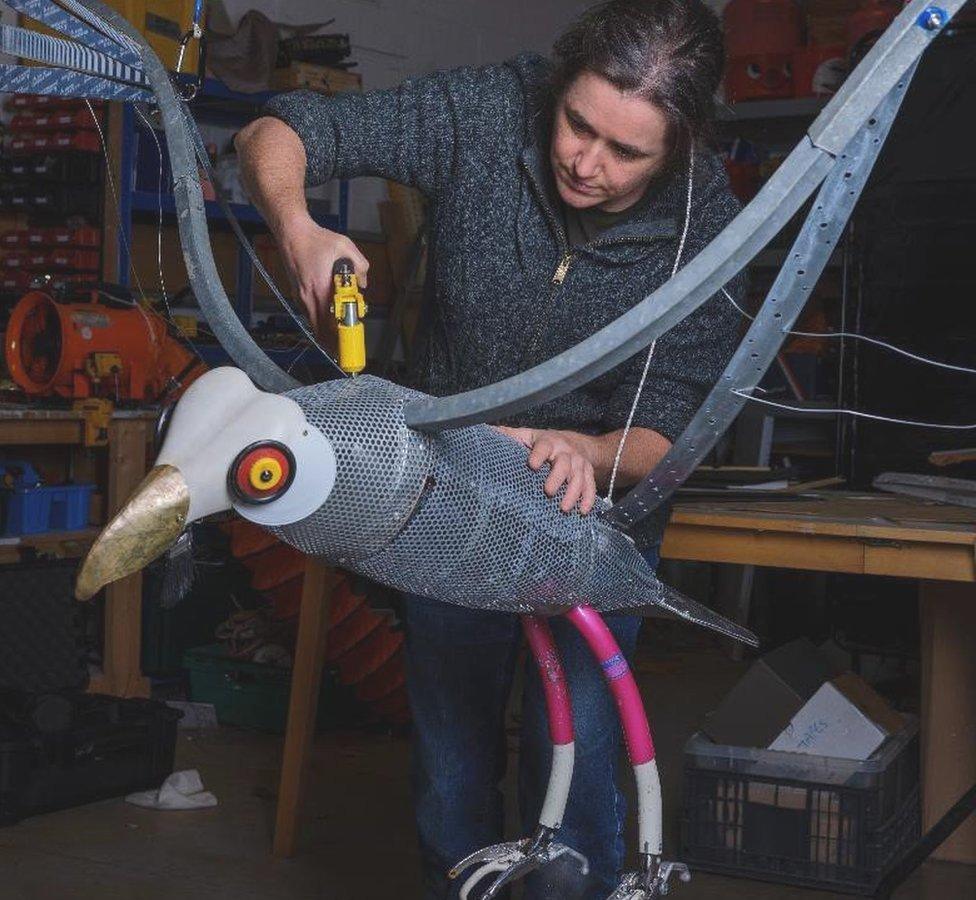
Ms Reader has been working with waste materials since 1997
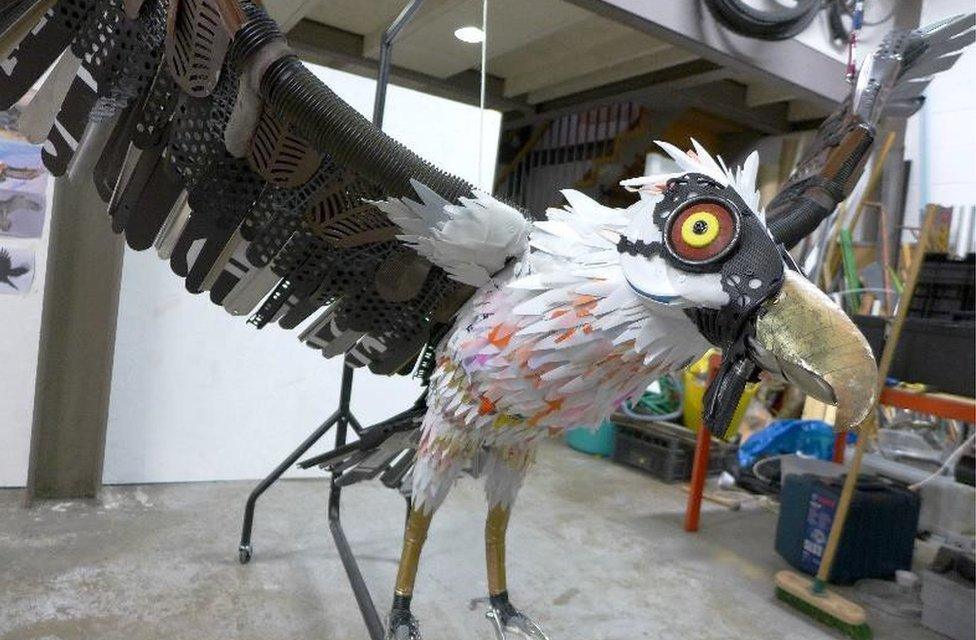
Ms Reader used skis and bike parts in her bearded vulture sculpture
The sculptor, who is based at the gallery, has been working with waste materials for 25 years.
Her sculptures are often representations of wildlife, people, vehicles or landmarks and sometimes have mechanical elements, using the working parts of old toys or clocks.
Ms Reader said she is often inspired by the "beauty of the natural world".
She said the inspiration for her bearded vulture sculpture came after a female bird from the French Alps was spotted in the Peak District in July 2020.
It was later seen in other parts of the country.
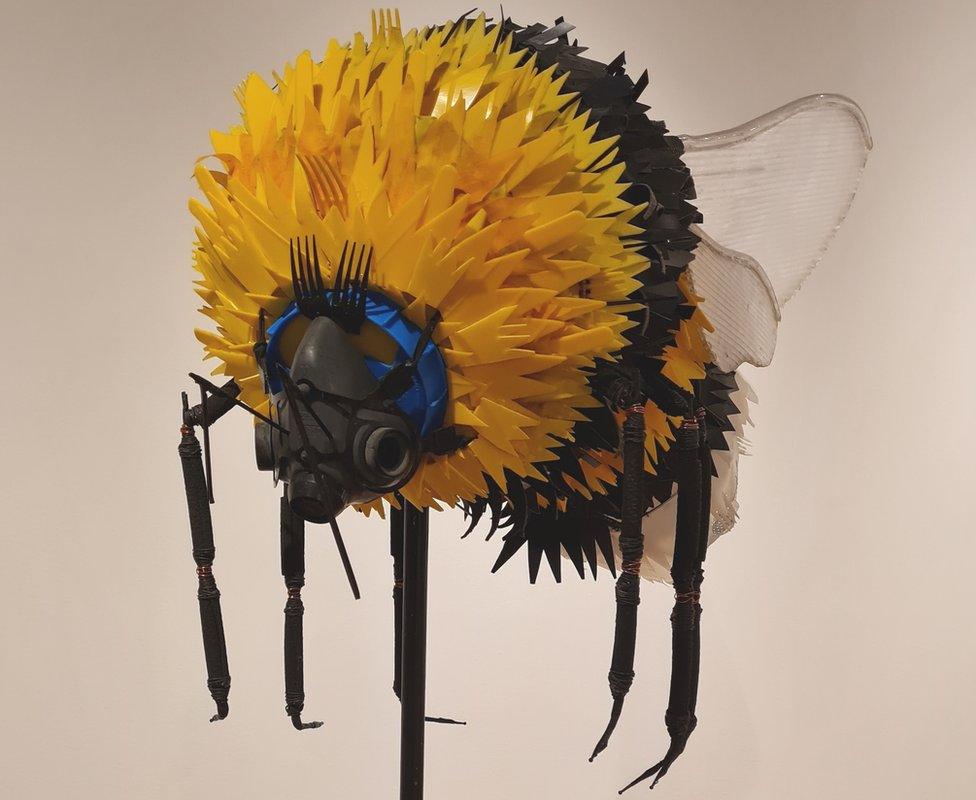
A gas mask was used for the face of the bumblebee
The idea for a white-tailed bumblebee figure came while spending many hours at her allotment in Nottingham during the pandemic.
The sculptures in the exhibition will be accompanied by a film documenting how Ms Reader made them.
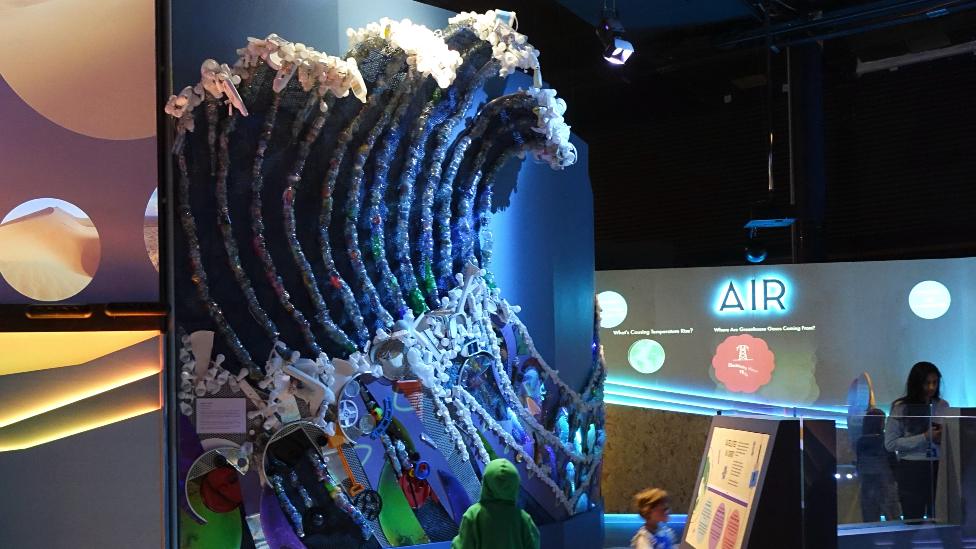
Ms Reader made this sculpture for the National Space Centre in Leicester
Ms Reader has worked with various organisations on their projects to help highlight issues like litter and plastics in rivers, recycling and reducing food waste.
She created a giant wave sculpture for the National Space Centre, in Leicester, made from plastic bottles and other detritus including tennis balls, footwear and toys that had been discarded and ended up in rivers.
"My sculptures draw attention to environmental issues in an aesthetic, humorous and non-confrontational way," she added.
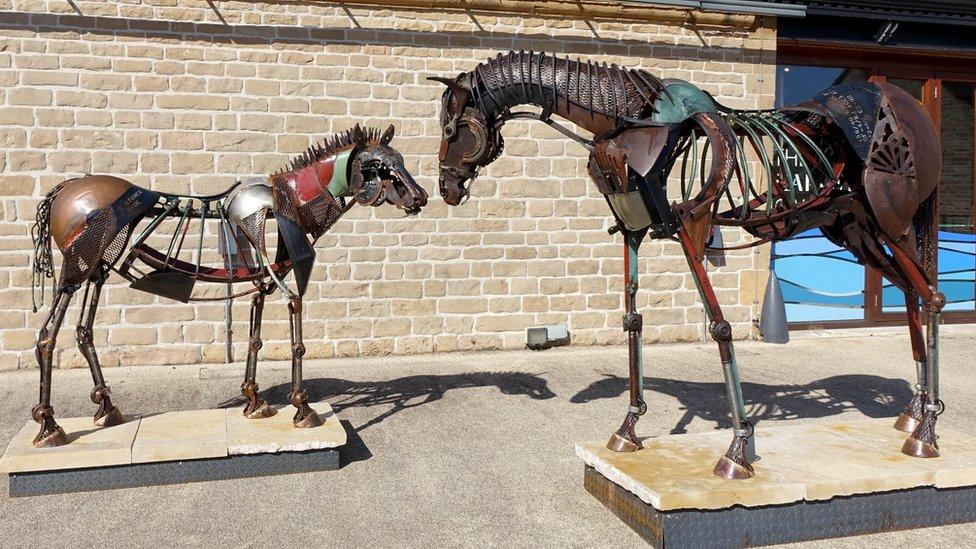
Ms Reader has also crafted horses from reclaimed metal sourced on the Welbeck estate for an art trail at the gallery

Follow BBC East Midlands on Facebook, external, on Twitter, external, or on Instagram, external. Send your story ideas to eastmidsnews@bbc.co.uk, external.
Related topics
- Published11 May 2022
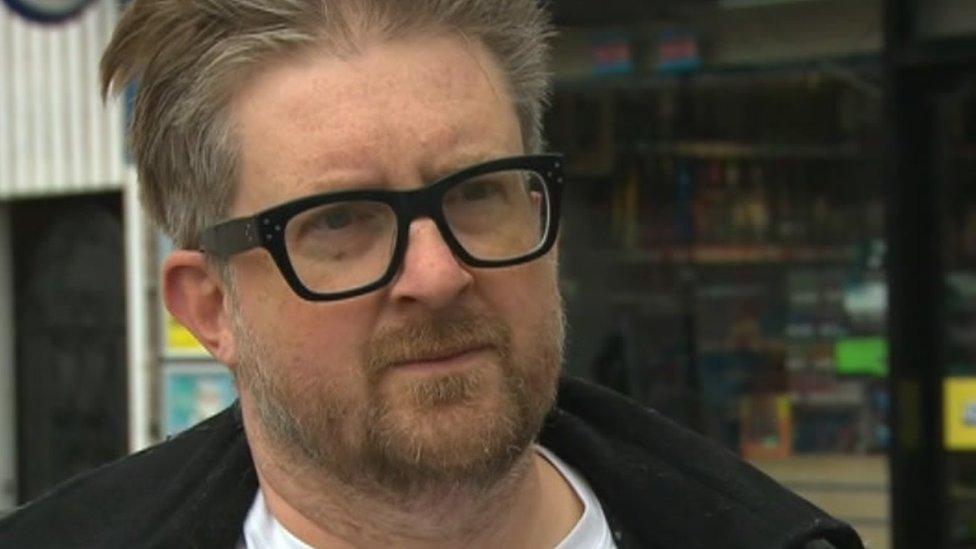
- Published28 April 2022
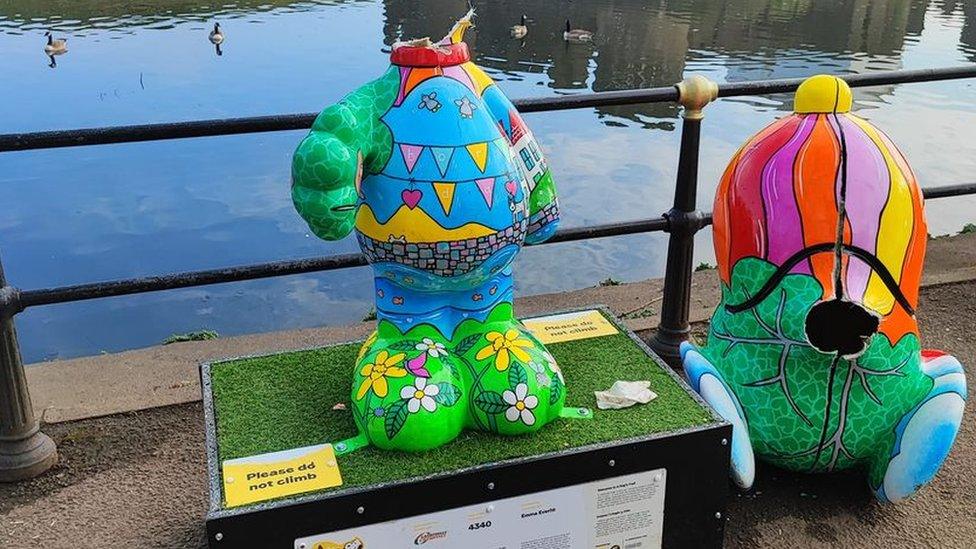
- Published21 April 2022
